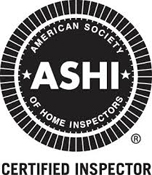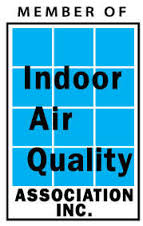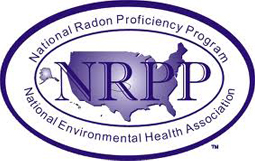A home inspection is a visual and objective inspection of any readily accessible areas of a property from the foundation to the roof.
The home inspection includes (but are not limited to)…
Roof Home Inspection. The inspector will enter the roof as long as the pitch is not too steep or covered with ice. Age and life expectancy will be determined, as well as advice for how to get a longer life out of the roof. Gutters, downspouts, vents, skylights, flashings and chimney will also be inspected and evaluated.
Heating & Cooling Systems. These will be tested and operated, inspected for proper installation, age and life expectancy will be determined. All heat sources will be inspected for proper operation and air flow.
Foundation & Structural. The foundation will be thoroughly inspected for cracks, bowing or other possible deficiencies along with recommendations for repairs. If foundation has been braced, the bracing will be inspected for proper installation. Other structural components such as joists, rafters, beams, and posts will be inspected for proper installation and condition.
Exterior Components. Driveway, grading, trim, siding, soffits, vents, deck, steps, electrical, windows, and doors will be inspected and evaluated for minor to major deficiencies.
Attic & Crawlspace. The inspector WILL ENTER the attic and crawlspace, and actually move around to look for leaks, rodents, electrical wiring, plumbing, proper ventilation and insulation as well as any structural issues.
Mold & Moisture. The inspector is an experienced and certified mold inspector, and knows exactly where any mold growth could be present in the house. If the inspector suspects any moisture in the basement, he will not hesitate with pulling the carpet in the corners, or even look behind the baseboards to find evidence of current of past moisture. The source of the problem will be located as well as advice for repairs.
Plumbing. Faucets, pipes and drains will be inspected for leaks, condition and proper installation. Water heater will be inspected for proper operation and installation, age and life expectancy will be determined.
Electrical. All outlets and lights will be inspected for correct installation and operation. Electrical panel will be thoroughly inspected for correct installation as well advice and recommendations regarding if the panel will meet the expectations for your future electrical needs.
Garage. Garage will be inspected for structural issues, electrical, proper operation and installation of overhead doors, and roof coverings.
Doors & Windows. All doors and windows will be operated and thoroughly inspected for condition and proper operation.
Appliances. All appliances will be operated for proper operation.
More and more sellers have their home inspected so they can repair and do updates upon the inspectors’ recommendation. If you suspect that your home has any deficiencies, it might make your sale easier if you repair any issues that will be revealed on the home inspection, and show the report and a list of your updates on a open house or to your prospective buyer.
Finding your home inspector can be done in many different ways
Talk to your real estate agent. The real estate agent usually has a good idea of 2-3 different inspectors they have had good experience with. Check them out!
Word of mouth. Word of mouth is usually a safe way to go. Talk to family members, friends or neighbors about their experience with the home inspector they used.
Check out the list of certified inspectors in ND. This is a list of all inspectors that are certified and insured in ND.
Visit website. The website is the face of any business. Browse around and see which one gives you a better impression.
Call to interview. Call a couple of inspectors and ask why they can give you the best inspection. Ask about background, experience, if they will enter roof, attic and crawlspace, perform testing on HVAC systems and so on.
Don’t go price shopping. You are probably about to make one of the biggest investments of your lifetime. There are always a reason some inspectors aren’t busy, and also a reason these inspectors are cheaper than others. You get what you pay for; don’t try to save $20 on $150,000 dollar deal.
What is your background and experience?
How long have you been in the business?
How many inspections have you performed?
Is this your full time or part time job?
How long will the inspection take?
What type of report will I receive and when will I get it?
Will you enter the attic or just take quick peak from the hatch?
Will you enter the roof or inspect it from the ground?
Will you enter the crawlspace?
Will you do testing on the HVAC systems?
What is your pricing?
It is not necessary, but highly recommended. You should follow the inspector around, make sure he is doing what he is supposed to, and address your questions & concerns. You will learn a lot about your house and get many tips for maintenance and updates that should be done. This will be a great help for you before moving in.
Yes. Even newly built homes can have problems that the builder is hiding or didn’t notice. However most findings are minor, but once found the builder could do the repairs before you move in.
Homes are built by humans, and humans make mistakes almost every day. You don’t want to move in to a house and figure out that something went wrong with your furnace or your water heater. Having a home inspection on a newly built home is absolutely recommended.
More than any other home should these be inspected. Typically these houses have been empty for a while, and with the lack of maintenance a lot things can be wrong.
You need to know what problems that will meet you when moving into the home, and what amount of money should expect to put in to it. An inspection will identify any major issues that may negatively impact the value of the home.
The inspection usually last between 1.5 to 2.5 hours depending on the age and the size of the home, and the problems the inspector could come over.
The cost of a home inspection can vary depending on several factors such as the size of your home, where the home is located, age of the home, and what you want inspected. The cost for a single-family home can range from $395 to $1,995.
A professional home inspector should at least be able to provide you with the inspection on the same day. Some inspectors can print the report on site or email it to you shortly after completed inspection.
Yes. If you can bring someone handy that you trust, that can help you ask the inspector the questions you might never think of asking.
If you have any questions or concerns before the inspection, write them down and address it to the inspector before the inspection. This is your time with a knowledgeable person in your new house, if there are things you don’t know how to operate or maintain, be sure to address that as well.
No house is perfect. If the inspector identifies problems, it doesn’t mean you should or shouldn’t buy the house, only that you will know in advance what to expect. If your budget is tight, or if you don’t want to become involved in future repair work, this information will be important to you. If major problems are found, a seller may agree to make repairs.
Definitely! Now you can complete your home purchase with confidence. You’ll have learned many things about your new home from the inspector’s written report, and will have that information for future reference.

 Menu
Menu









